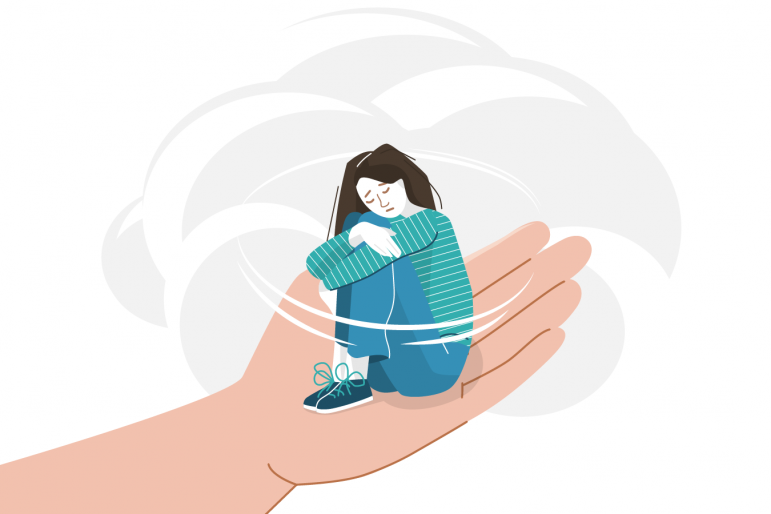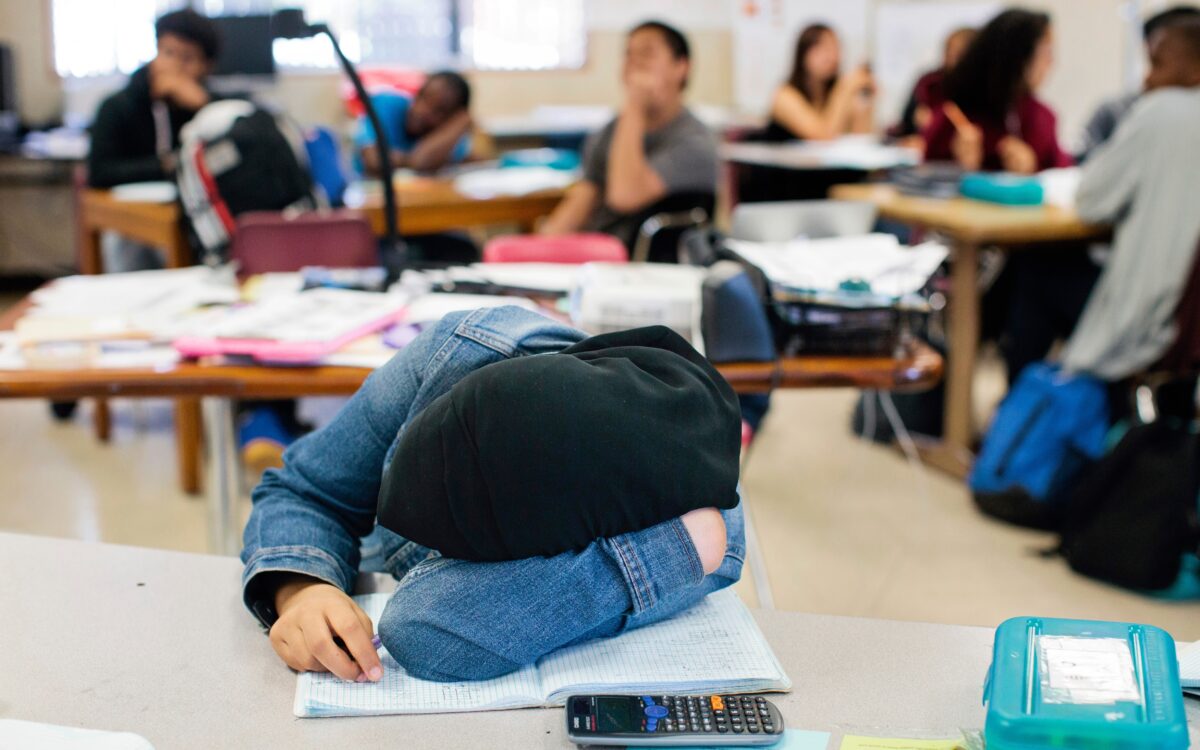Faced with escalating student mental health needs, one California school district is trying an unusual new approach – one that does not include counselors.
Saugus Union School District in northern Los Angeles County, which in recent years has endured a nearby school shooting, wildfires, and increasing political polarization, is eliminating all four of its counselor positions and replacing them with social workers. In the fall, the district will have nine social workers and no counselors.
The idea is that social workers are better trained to address some root causes of student anxiety and depression, such as poverty and other hardships that lie beyond the classroom, said Superintendent Colleen Hawkins. They’re also more experienced in working directly with families and connecting them to community services, she said.
“Our counselors were very valuable during COVID, but now we’re back in school and we’re facing different challenges,” Hawkins said. “We looked at the data and decided we need to take a more systemic approach to the broader challenges our students and families are facing.”
Saugus Union is a middle-class elementary district in Santa Clarita, with high test scores and strong family involvement. But events in recent years have taken a toll on the district’s 10,000 students.
In October 2019, the Tick and Saddleridge fires forced thousands to evacuate and the district to close campuses.
The next month, a student opened fire at Saugus High School, killing two classmates and wounding three others before killing himself. Saugus High is not in the elementary district, but many students had older siblings at Saugus High, and the victims had attended Saugus elementary schools.
Then in March 2020, COVID forced the closure of school campuses nationwide. Saugus schools were relatively early to reopen, but a politically divided community has meant that protests from both sides are common.
Students are experiencing the gamut of emotions from these events, said Tonya Nowakowski, the district’s student support services coordinator and a social worker. Anxiety and depression have increased, along with self-harm, eating disorders, suicidal thoughts, and inappropriate behavior in class, such as throwing things or refusing to sit down.
“Mental health challenges can happen to anyone. It cuts across all socio-economic and class boundaries,” Hawkins said. “That’s why it’s so important we build networks to help our students and their families be resilient in the face of tragedy.”
But counselors say that students’ spike in mental health needs is proof that the district should expand its counseling staff, not eliminate it. While Saugus’ school counselors spend some of their time tending to academic issues, most of their days are spent on mental health tasks: meeting one-on-one with students, talking to classes, working with small groups, visiting families at home and consulting with teachers. Some have long-standing relationships with students and families who’ve lost loved ones to Covid or suffered other traumas.
Dismantling the counseling program will only hurt those students further, they said.
“It’s devastating,” said Bridgette Martinez, who’s been a counselor in Saugus since 2016. “How am I going to tell these students who’ve already lost so much, and gone through so much upheaval, that they’re going to lose this, too? It’s a betrayal to our students.”

The district’s counselors strongly protested the layoffs, with backing from the California Association of School Counselors and the American Civil Liberties Union of Southern California. Both argue that counselors are crucial on school campuses, especially now. They focus on social-emotional learning, one-on-one behavioral services and overall campus climate, among other tasks intended to make students feel safe and welcome at school.
Like school social workers and psychologists, counselors have graduate-level training in addressing students’ mental health needs. All three have pupil personnel services credentials, although with different areas of specialization.
“School counselors are highly sought-out mental health professionals that offer a scope of services that other professionally trained mental health service providers don’t offer,” said Loretta Whitson, executive director of the California Association of School Counselors. “It makes no sense for Saugus, at this critical time when mental health issues are at an all-time high, to consider sunsetting their entire school counseling program. Not only does the Saugus decision conflict with best practices and decades of research on the effectiveness of school counseling, it also comes during the critical recovery period of the COVID-19 pandemic.”
Amir Whitaker, senior policy counsel at the ACLU of Southern California, echoed Whitson’s sentiments. Unlike counselors, school social workers don’t specialize in addressing behavioral and mental health issues on a campuswide level, which means that ultimately far fewer students will benefit, he said.
“The model Saugus is proposing has tremendous holes that are very visible to anyone who looks at providing services to the broad range of needs within a school setting,” Whitaker said.
The state does not require schools to have any counselors, social workers or psychologists, but most have at least a few. Last year, Gov. Gavin Newsom and the Legislature poured millions into programs to bolster youth mental health, which was declining before the pandemic but dropped sharply when campuses closed. The state is encouraging schools to use their COVID relief funding to expand mental health services and social-emotional learning, including hiring counselors, psychologists and social workers.
Still, California still ranks toward the bottom of states nationwide in its counselor-to-student ratio, at 1:601. Among school social workers, the ratio is even higher, at 1:6,000.
Saugus isn’t the only district that’s investing in social workers. Los Angeles Unified recently hired 300 psychiatric social workers, bringing the district total to 750. La Mesa-Spring Valley in eastern San Diego County recently went from two to 16 social workers. San Francisco Unified has 120 social workers, 15% of all school social workers in the state.
Still, they’re outnumbered by counselors in most districts. Los Angeles Unified, for example, has more than 1,500 counselors in all.
Paul Brazzel, president of the California Association of School Social Workers, said the COVID funding windfall has led to a hiring boom for school social workers in California.
But ideally, he said, social workers would not work alone. They’d work on a team of counselors and psychologists, each with their own areas of expertise.
“In a perfect world, schools would take a multidisciplinary approach,” he said. “We’re all qualified to help students with mental health needs.”
Meanwhile, in Saugus, Martinez and her colleagues are preparing for their last day of work on June 10. Jody Bolde, a counselor for seven years, said she’ll miss the students she’s been seeing one-on-one, the monthly classroom lessons, the small groups of students she helps with social and emotional skills, and the countless other students and teachers she’s worked with over the years.
“I love my job. This has been gut-wrenching,” she said. “I think social workers are great, but I don’t understand why we both can’t be here to help kids.”
